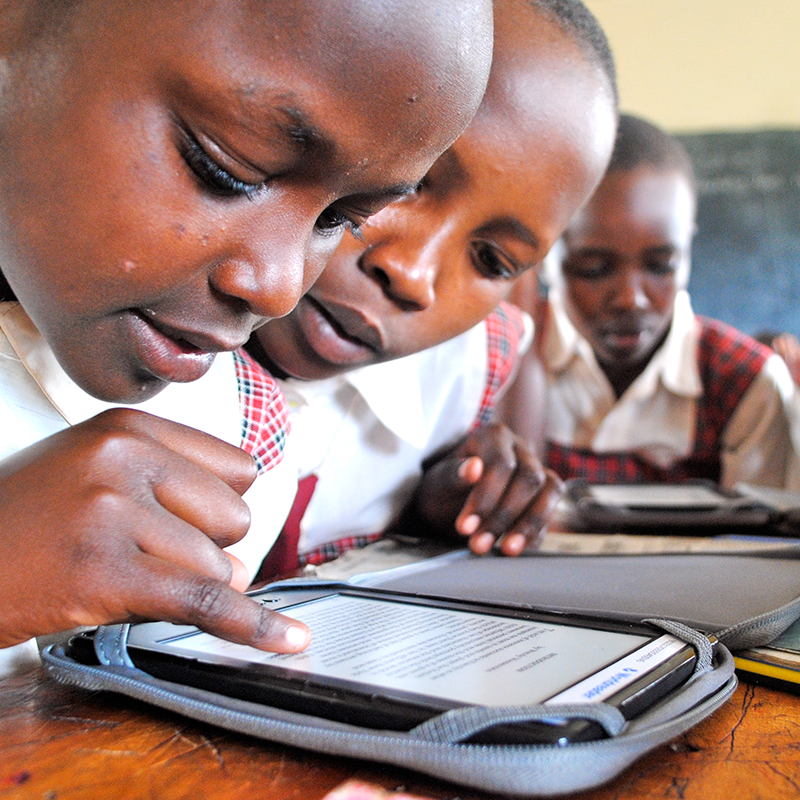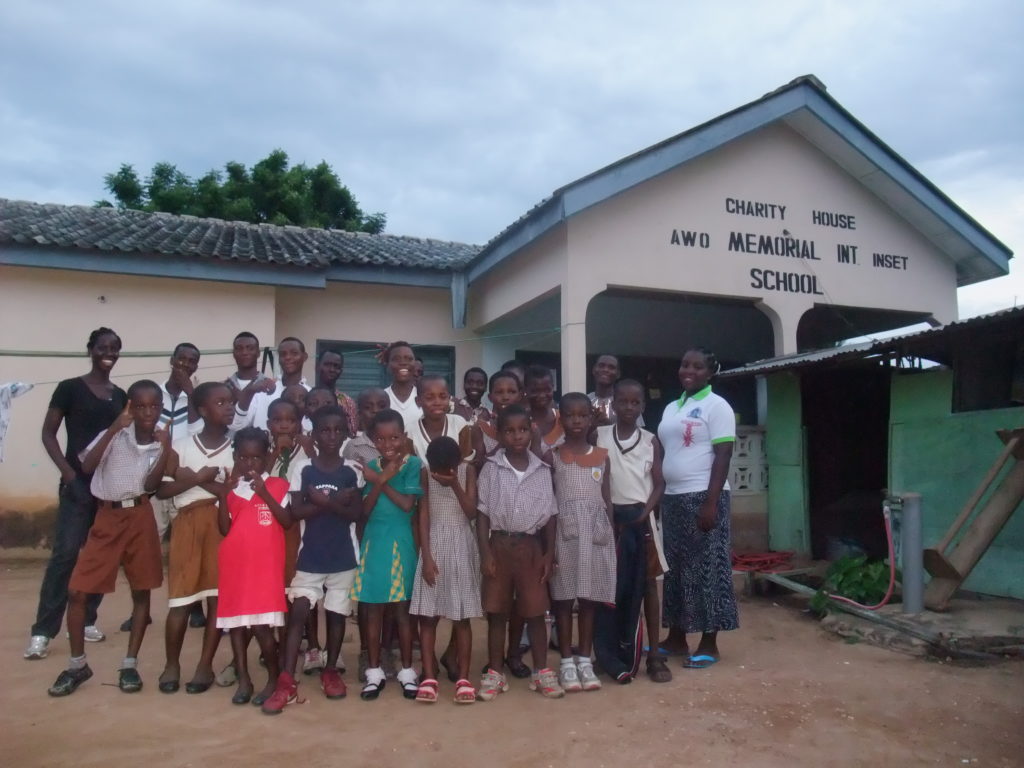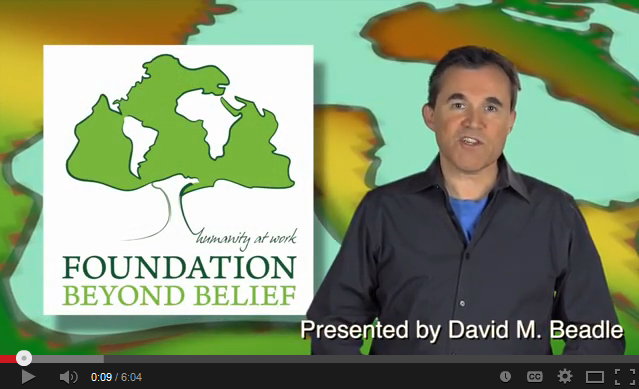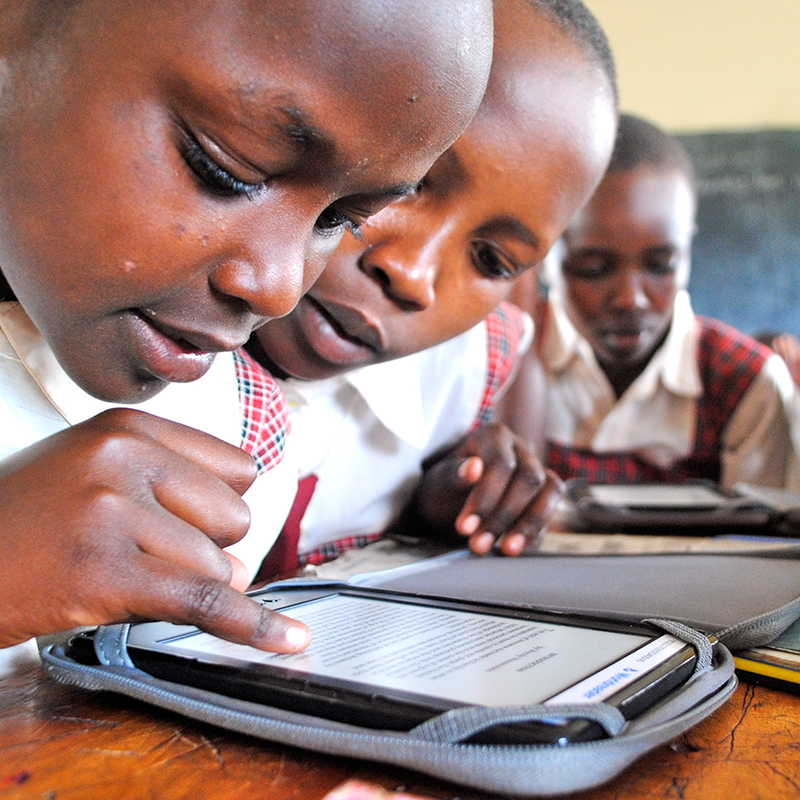Search results for: Worldreader
Worldreader event guide offers information aimed at eradicating illiteracy
Worldreader is Foundation Beyond Belief’s current Education beneficiary for the Humanist Giving donation program. Their mission is to “eradicate illiteracy by delivering a library of e-books to people in low income countries.” We’ve created a guide with information and activities that can help you learn more about Worldreader’s goals, organize events focused on literacy, and…
Read MoreWorldreader
Worldreader works to eradicate illiteracy through the distribution of e-readers in primary school classrooms. Each e-reader is loaded with local and international books. Furthermore, Worldreader supplies greater access to additional reading materials through their phone app, Worldreader Mobile. To date, the e-reader program has reached more than 13,000 children across nine African countries, and the…
Read MoreQ2 2014 Humanist Giving results arrive on the eve of FBB’s conference
Each quarter, Foundation Beyond Belief presents a different and varied slate of beneficiaries that will be the recipients of member donations for that quarter. You can reacquaint yourself with our Q2 2014 featured beneficiaries in this video. 50 Cents. Period. made us aware of the impact of menstruation on women across the world. Greening of…
Read MoreFBB supporter brings e-readers to Ghanaian school
When Jeff Strang, an FBB supporter and donor, was a Peace Corps volunteer in Ghana in 1980-82, he met a fellow teacher, David Dogbe. “I lived next door to David and his lovely family of five,” says Strang. “I ate with them a lot; his wife, Judith, was an excellent cook.” Over the years, they’ve…
Read MoreA final look at our second-quarter beneficiaries
Before we say goodbye to our second-quarter beneficiaries, take another look at these great organizations and the work they’re doing to make the world a better place. Poverty and Health: 50 Cents. Period. Menstruation Matters was the rallying cry—and Twitter hashtag—for the first ever Menstrual Hygiene Day held on May 28, 2014, and 50 Cents.…
Read MoreOh, the places they’ll go!
In order for poverty to be eradicated, communities to thrive, and global public health to be improved, universal literacy must be nurtured. To become literate, children need to practise reading. To practise reading, they need books. And to get books, they need a complex distributional and financial network sourcing age- and culture-appropriate books, paying for…
Read MoreMeet our beneficiaries for the second quarter
We hope you’re as excited as we are about our second-quarter 2014 beneficiaries, 50 Cents. Period, The Greening of Detroit, Worldreader, Leo Igwe Research Project, and Baptist Joint Committee for Religious Liberty. Get to know them in our latest video. If you’d like to adjust your donation allocation, log in to your account and click…
Read MoreIntroducing our second-quarter beneficiaries
Our new slate of beneficiaries for the second quarter of 2014 is a fantastic collection of organizations working to promote literacy in low-income countries, combat stigmas surrounding women’s health, nurture green spaces in an urban landscape, defend those falsely accused of witchcraft in Ghana, and staunchly defend the separation of church and state. Learn more…
Read MoreLast chance to support our third-quarter beneficiaries
By Sarah Henry
The third quarter of 2013 is drawing swiftly to a close, and it’s your last chance to distribute your donations among our five beneficiaries.
Here’s a quick look at what our amazing beneficiaries have been up to this quarter:
 Hesperian Health Guides, our Poverty and Health beneficiary, started as a humble organization publishing one manual on basic home health care. Now, Hesperian provides an online bookstore, resources in more than 80 languages, digital diagnosis tools, illustrations, and downloadable health guides. Hesperian also runs a book donation service called “Gratis Books,” which gives free resource libraries to communities in need. With its twenty current publications, Hesperian Health Guides is working to make sure that every person, regardless of doctor availability, is diagnosed accurately and treated appropriately.
Hesperian Health Guides, our Poverty and Health beneficiary, started as a humble organization publishing one manual on basic home health care. Now, Hesperian provides an online bookstore, resources in more than 80 languages, digital diagnosis tools, illustrations, and downloadable health guides. Hesperian also runs a book donation service called “Gratis Books,” which gives free resource libraries to communities in need. With its twenty current publications, Hesperian Health Guides is working to make sure that every person, regardless of doctor availability, is diagnosed accurately and treated appropriately.
The Human Rights beneficiary for Q3, Cure Violence, treats community violence as a disease, promoting prevention, diagnoses, and curative steps. More specifically, Cure Violence has three steps to dealing with an “infection” of violence: detecting and interrupting potential infectious events, determining who are most likely to cause another infectious event, and reducing their likelihood of developing and subsequently transmitting the infection, changing the underlying social and behavioral norms, or environmental conditions, that directly relate to this infection. Cure Violence’s program has been proven to eliminate or reduce violence in Chicago, New York, and Baltimore, and the program works effectively across the United States.
 Our Natural World beneficiary this quarter is EcoHealth Alliance. (We featured this organization, formerly Wildlife Trust, in the first quarter of 2010.) EcoHealth Alliance works across the United States and in 20 other countries in Central and South America. In America, EcoHealth Alliance works with the federal government to promote science in the classrooms and science-guided legislature proposals. EcoHealth Alliance has a multitude of projects focused on promoting greater ecological health and biodiversity. Bat Conservation and Health focuses on communicable diseases in bat communities, and how to prevent them. The Sicki Project supports peer review efforts and facilitates scientific collaboration in an attempt to discover the origins of emerging infectious diseases, while other projects focus on ending the illegal wildlife trade. EcoHealth Alliance supports conservationists in order to save endangered species and their habitats, and strives to protect delicate ecosystems for the benefit of both wildlife and humans.
Our Natural World beneficiary this quarter is EcoHealth Alliance. (We featured this organization, formerly Wildlife Trust, in the first quarter of 2010.) EcoHealth Alliance works across the United States and in 20 other countries in Central and South America. In America, EcoHealth Alliance works with the federal government to promote science in the classrooms and science-guided legislature proposals. EcoHealth Alliance has a multitude of projects focused on promoting greater ecological health and biodiversity. Bat Conservation and Health focuses on communicable diseases in bat communities, and how to prevent them. The Sicki Project supports peer review efforts and facilitates scientific collaboration in an attempt to discover the origins of emerging infectious diseases, while other projects focus on ending the illegal wildlife trade. EcoHealth Alliance supports conservationists in order to save endangered species and their habitats, and strives to protect delicate ecosystems for the benefit of both wildlife and humans.
 Women’s Global Education Project, our Q3 Education beneficiary, primarily focuses on promoting education for women and girls in Senegal and Kenya. WGEP was founded in 2003 as a Senegalian project. They now work in Senegal and Kenya to provide scholarship support, tutoring, mentoring, and, their most central project, education about alternatives to female genital mutilation (FGM) as a rite of passage for girls. WGEP provides classes for families on girls’ health and rights, as well as offering an educational program, Circumcisions with Words, for teenage girls and their mothers, at which they attend workshops about women’s rights and female empowerment. WGEP is focused on developing female-friendly communities in Senegal and Kenya.
Women’s Global Education Project, our Q3 Education beneficiary, primarily focuses on promoting education for women and girls in Senegal and Kenya. WGEP was founded in 2003 as a Senegalian project. They now work in Senegal and Kenya to provide scholarship support, tutoring, mentoring, and, their most central project, education about alternatives to female genital mutilation (FGM) as a rite of passage for girls. WGEP provides classes for families on girls’ health and rights, as well as offering an educational program, Circumcisions with Words, for teenage girls and their mothers, at which they attend workshops about women’s rights and female empowerment. WGEP is focused on developing female-friendly communities in Senegal and Kenya.
The Challenge the Gap beneficiary position was filled this quarter by American Friends Service Committee, a Quaker nonprofit developing a variety of programs focused on peace. AFSC wants to eliminate nuclear weapons, shape and facilitate a just federal budget, and provide peaceful alternative social programs for potentially violent youth. AFSC also has a large project dedicated to prison-system reform, a consistent focus of Quaker social programming. Right now, AFSC works across the United States and in 14 other nations, including North Korea, Israel, and Haiti. AFSC works to provide lasting peace with justice, a goal that Quakers see as a practical extension of faith.
Click here to learn more about this quarter’s outstanding beneficiaries.
This month, we’ve been updating you on the progress of Seráh Blain’s campaign to raise awareness of the homelessness epidemic in Arizona. Seráh struggled through physical injuries, battled depression and sheer exhaustion, and developed a supportive street community. Her goal was to raise $2 for every homeless person in Arizona last year, but the project was unfortunately cut short due to ongoing health issues. We are awarding Seráh and her project a $500 Small Grant. Her project is inspiring and eye-opening to the realities of chronic homelessness — you can read more or donate at her website.
 All quarter, our Pathfinders have been pouring their lives into working with nonprofits, schools, and businesses for their secular humanist service trip. Pathfinders Project has three main goals:
All quarter, our Pathfinders have been pouring their lives into working with nonprofits, schools, and businesses for their secular humanist service trip. Pathfinders Project has three main goals:
- Complete clean water, education, and sustainability projects in Asia, Africa, and Latin America
- Engage in dialogue across religious, cultural, and ethnic boundaries
- Assess countries and partner organizations with the ultimate goal of selecting a site for launching the Humanist Action: Ghana, a future program of Foundation Beyond Belief
The Pathfinders kicked off their year of service in Los Angeles, CA, working with the Westside Food Bank, TreePeople, and Heal the Bay. In August, the Pathfinders moved on to Cambodia, their first international mission. They taught English and built floating latrines and water movement systems at Bridge of Life School. Now, our Pathfinders are working in Uganda, where they will remain until mid-November. Conor, Ben, Michelle, and Wendy are working hard to provide much-needed services to children and adults who may not have gotten these benefits another way. Follow their adventures in humanism, service, and international relations on their website.
Earlier this month, FBB launched a new crisis response drive to support those affected by the violent conflict in Syria. International Rescue Committee is the beneficiary of this fund drive. While much of the world’s attention is focused on the political and diplomatic aspects of the Syrian civil war, the most pressing issue that must be addressed is the massive refugee crisis. More than 6 million Syrians have been displaced,  and relief organizations have received less than half of the funding necessary to meet their basic needs. The IRC is working to provide food, water, and shelter to refugees in Syria, Iraq, Jordan, and Lebanon. Setting the IRC apart from other crisis response nonprofits is its dedication to eliminating the gender-based violence that often accompanies war and displaced populations. So far, we’ve raised more than $8,800 to support the IRC’s work. Click here to donate to our crisis response campaign.
and relief organizations have received less than half of the funding necessary to meet their basic needs. The IRC is working to provide food, water, and shelter to refugees in Syria, Iraq, Jordan, and Lebanon. Setting the IRC apart from other crisis response nonprofits is its dedication to eliminating the gender-based violence that often accompanies war and displaced populations. So far, we’ve raised more than $8,800 to support the IRC’s work. Click here to donate to our crisis response campaign.
In July, Foundation Beyond Belief hit a major milestone: Our members and community have now raised more than 1 million dollars for secular and humanist organizations. Thank you so much for coming together and proving that the humanist community is compassionate and actively engaged in improving this life for all people. With continued, generous member and donor support, we’ve reached old goals and set new ones. Thanks again for your support as we promote humanist compassion and generosity.
Don’t forget to sign in to your account and allocate your donations for the third quarter (on the right side of the page, choose “Manage Donation”).
Read MoreHesperian Health Guides takes global public health into the digital age
 By Cathleen O’Grady
By Cathleen O’Grady
Hesperian Health Guides, Foundation Beyond Belief’s current Poverty and Health beneficiary, got its start in Mexico in 1973 when it published a simple manual addressing community health needs with accurate medical information, conveyed in a culturally appropriate manner. This manual, Donde No Hay Doctor, was translated into English four years later as Where There Is No Doctor.
Skip forward to today, and Where There Is No Doctor has spread like wildfire. Not only has the World Health Organization called it one of the world’s most widely used health guides, but this year, Where There Is No Doctor celebrates 40 years in circulation, 28 updated editions, and its launch as an e-book.
 Where There Is No Doctor’s availability in e-book format will greatly increase Hesperian’s ability to distribute critical health information to remote communities. The organization’s Gratis Books Program, a book donation program run by Hesperian volunteers, is limited by shipping costs and other factors, but the availability of an e-book will exponentially increase access to medical information for communities around the world.
Where There Is No Doctor’s availability in e-book format will greatly increase Hesperian’s ability to distribute critical health information to remote communities. The organization’s Gratis Books Program, a book donation program run by Hesperian volunteers, is limited by shipping costs and other factors, but the availability of an e-book will exponentially increase access to medical information for communities around the world.
To make this real, Hesperian has initiated a partnership with San Francisco-based Worldreader to distribute thousands of Kindles pre-loaded with Where There Is No Doctor in schools across Sub-saharan Africa. Both organizations pride themselves on ensuring that their work is relevant to the communities they serve. Hesperian works closely with local organizations and community leaders to create content that is accessible, culturally appropriate, and relevant, and Worldreader has a tested and appreciated delivery system.
Hesperian’s projects are riding the wave of information technology to improve their content and distribution methods. Hesperian’s Digital Commons Initiative allows users across the globe not only to access and download health text and images in a variety of formats, but also to translate and customize the content. With mobile device usage increasing exponentially around the world, Hesperian’s digital initiative intends to employ emerging digital technology to get lifesaving medical knowledge onto cell phones and other accessible devices.
To learn more about Hesperian’s work to improve health education around the globe, take a look at their website, and keep up with them on Facebook, YouTube, and Twitter.
Read More



